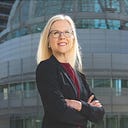Smith: SJ City’s curtailment of public speech at Council Meetings reveals broken and biased public input process
Eyebrows were raised across the city recently, when Council decided to shut down public Zoom input into City Council and staff open meetings for fear that too much Hate Speech was interrupting the proceedings. Irene Smith, former D3 Council candidate and head of the local Independent Leadership Group and United Housing Alliance, says the problem isn’t Zoom — it’s a dated and corrupt input process that favors political donors, and disadvantages local residents. An Opp Now exclusive interview with our co-founder Christopher Escher.
Opportunity Now: We’ve always suspected that Council Meetings and Housing Dept public meetings designed to garner public input were often astroturf — that advocacy groups bus in their supporters, give ‘em some signs and talking points, and all of a sudden, they become the Voice of the Public.
Irene Smith: Taking Zoom away as a form of input from residents, then, limits the input to those who can attend in person. Not everyone can attend, and not everyone who attends is local. The Council should be focused on making sure the input is from their constituents in San Jose rather than eliminating a form of input and reducing the number of local voices.
But this focus on attending in person privileges big organizations that can gather larger numbers of people to show up with signs and read from the same talking points. Big interest groups, big business groups, big union groups, big advocacy groups. Big disguises itself as a local voice, and it’s up to our councilmembers to see behind the mask.
This pretense of receiving input from local residents makes it easy for politicians to say they are “listening.” It makes it easy for journalists to get quotes. It makes it easy for TV producers to get their segment done. But it’s not an accurate expression of local public sentiment.
Oftentimes, these council meetings’ attendees and protestors don’t reside in San Jose — they’re paid advocates and lobbyists just doing their job. They all get to position themselves as representatives to our elected representatives; and the system that enables big outside interests can shout that they represent local residents. We should have a direct voice to our electeds and not go through the game of special interests claiming they have our voice. The Council sanctions outside input that reinforces the power of the special interests that got the CM’s elected.
Our priority should be on an aggressive outreach program directly to local residents that better understands local public sentiment on these issues. This would mean surveys, polls, focus groups — the results of which should all be made public. I call this an Office of Public Listening, and it was a key plank of my Council campaign.
ON: One of the curious arguments I’ve seen floating around this issue is that the City has an obligation to protect citizens from Hate Speech that is on an equal level of protected Freedom of Speech. Where did that come from?
IS: Contrary to local media’s assertion, the City (and, for that matter, the county, the state, and the federal government) has no obligation to “protect” citizens from hate speech — unless it’s inciting criminal behavior. And even if you think they do, nobody with a pulse would suggest it’s on the same level as protecting First Amendment rights.
Specific threats of violence targeted against a person or a group can be criminal. Advocacy groups have started to escalate from personal threatening protests made on private property against SCCAOR or protesters in the office of DA Jeff Rosen with photos of his eyes scratched out.
Even so, I agree that some speech can be bullying, intimidating, insulting, threatening in such a way that it makes people feel fearful about speaking up, showing up — even in some cases traumatized. Bullying should not be tolerated in public city meetings, and the Council should enforce Robert’s Rules of Order to reach the level of decorum and respect required for having healthy and free debate. Our Councilmembers should be our role models for this manner of communication.
While Free Speech seems to be on the endangered species list, we need to avoid an overreaction that ends up achieving what it’s intended to stop: censorship and coercion.
ON: I guess you’re saying we need to take care we don’t move from Freedom of Speech to Freedom from Speech.
IS: And Freedom from certain Speakers. We are seeing that already with temporary restraining orders being used by politicians to silence criticism from citizen journalists.
ON: It sounded like the City was interested in having some AI bot be written that could bleep out offensive speech.
IS: Having AI address this issue is dangerous overkill. If we follow the Decorum protocols in Robert’s Rules of Order, it just means the Mayor (or someone else empowered) shuts down a speaker when they lack appropriate decorum. The standard ultimately is not language or a list of No Go words per se, but a set of principles regarding how and when we say things in these public meetings. We can enforce decorum without eliminating opportunities for vital local public input.
We don’t need to replace our mayor with a bot. Rather, we should be working to maximize local public participation and speech, not minimize it.
RELATED:
Smith: Reimagining public listening
Smith analysis: City’s citizen feedback system works against compromise
